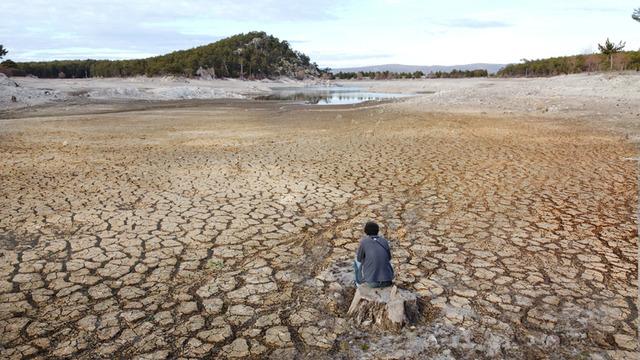Within the scope of the 28th Conference of the Parties (COP28) of the United Nations Framework Convention on Climate Change (UNFCCC), scientists in the field of social and natural sciences announced the 10 New Insights in Climate Science report with UNFCCC Executive Secretary Simon Stiell.
67 leading researchers from 24 countries contributed to the report, prepared in collaboration with climate research organizations Future Earth, the Earth League and the World Climate Research Programme. The report covers the latest and most important climate science research from the last 18 months, synthesized to help policymakers inform negotiations at COP28 and policies in 2024 and beyond.
Within the scope of the 10 predictions they put forward, scientists stated that it is rapidly becoming inevitable for the global temperature increase to exceed 1.5 degrees, and pointed out that it is critical to minimize the size and duration of this limit exceedance.
Scientists pointed out that fossil fuel use should be reduced rapidly in order to stay within the target range of “limiting the temperature increase to below 2 degrees and, if possible, to 1.5 degrees” in the Paris Agreement, and called for the adoption of strong policies to ensure a sharp decrease in emissions.
Scientists stated that the loss of mountain glaciers is accelerating, that “human inactivity” is increasing in regions where climate risks exist, that climate adaptation should be done fairly, and that reforming food systems can contribute to fair climate action.
“WE ARE ON THE DANGEROUS ROAD TOWARD MISSING THE 1.5 DEGREE LIMIT”
UNFCCC Executive Secretary Stiell stated that the 10 New Insights in Climate Science report provides an important tool for decision-makers and said, “Scientific findings from such reports should inform the ambitious and evidence-based action plans needed in this critical decade of accelerated climate action.” said.
Johan Rockström, Director of the Potsdam Climate Impacts Research Institute, stated that the science is very clear and concise, and said, “COP28 should be the global meeting where the world gets serious about phasing out fossil fuels. COP28 will protect the remaining carbon sinks and stocks in ecosystems, as well as create resilience and new carbon sources in agriculture.” “This is the moment to reduce emissions by building sinks.” he said.
Emphasizing that we have failed in nature and energy so far, Rockström said, “This has put us on a dangerous path towards missing the 1.5 degree biophysical limit, which is the Paris Agreement target.” he warned.
“IT IS CRITICALLY IMPORTANT”
Aditi Mukherji, Director of the Climate Change Adaptation and Mitigation Domain Platform of CGIAR, a global partnership that unites international organizations conducting research on food security, made the following assessment:
“The close links between climate change mitigation and adaptation, biodiversity conservation and broader societal needs, including food security, require a transformative shift in the way we jointly manage socio-ecological systems at all scales. Crucially, policies and solutions are increasingly challenging due to increasing food security risks.” It must be designed and implemented with those who suffer most.”
Future Earth Global Center Director Wendy Broadgate stated that scientific findings show that the temperature increase is heading to exceed 1.5 degrees and said, “If we want to reduce the risks to societies around the world, it is critical to minimize this exceedance. COP28 aims to phase out fossil fuels.” “There must be a turning point where collective action towards he said. (AA)

